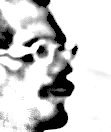Cambridge
While offering the Information Theory and Coding course for the final year undergrads at GEC Barton Hill during Jun-Oct 2005, Google had taken me to a wonderful book titled "Information Theory, Inference, and Learning Algorithms" by Prof. David MacKay of Cambridge University, UK. I was so impressed by the book and even more by the author that I started harboring dreams about doing a PhD under his guidance.
The best way to get funding for higher studies in UK is the Common Wealth Scholarship. This is part three of the Statement of Purpose that I had crafted for the scholarship application in September 2006. It was later slightly edited by Joji for my future applications. This is the edited version.
---------------------------
Part III : Future plans/proposals after the study/research/training and its prospectus---------------------------
[Max 8000 characters]
It is curiosity that drives me through all the aisles of learning. What has always fascinated me more than the laws of the cosmos or the mystery of quarks is the phenomenon of intelligence and knowledge; for which the laws discovered, if any, are far from comprehensive. I'm passionate to undertake any journey that will unveil before me even a glimpse of this phenomenon.
The quest to understand the structure and representation of knowledge with in the human brain started of as an interesting thought exercise. When I started pursuing it seriously, I was quick to realise that it is more than a lifetime's work and a few years of doctoral studies can at the maximum teach me one or two tools that might come handy in this journey. A bit of reading and conversation with peers and teachers convinced me that areas like Information Theory, Learning Theory, Complexity Theory, Mathematical Logic and Psychology might give new perspectives.
I wish to pursue my journey in search of the structure and representation of knowledge as far as it will take me. My wildest dream is to be able to design machines that represent the knowledge in the way humans do. With added feature of natural language processing, these machines would be "omniscient artificial scholars" who can answer any question to which answer is known to the human race. In the process, attempts towards quantifying knowledge as Information Theory does to Information or at least classifying it into various categories as Complexity Theory does to algorithms have to be made.
Though the pursuit of knowledge in itself is a journey worth spending all your life, I have realised with full conviction that true satisfaction lies in being able to carry more people with you on that journey. With brief exposures to research groups during post graduate studies at the Indian Institute of Science, Bangalore and to the industry during work at Ittiam where I was involved in developing and implementing algorithms for video compression and coding, and to teaching during my present work, I'm convinced that my career should be one of team research and teaching. I wish to come back to India after the doctoral studies and continue my career in the academia, working in open ended research groups and classroom teaching. I'm sure that the learning and exposure that can be gained by undertaking a doctoral study in one of the knowledge centers in UK can help me unmeasurably in realizing this dream.
I also realise the lead role that knowledge is going to play in the further development of mankind. In the so designated "Information Age", knowledge needs to be in the public domain and not monopolised by a powerful few. I plan to practice and advocate the need for bringing and retaining all knowledge in public domain and actively support efforts like the Free Software movement and Open Access Initiative and also to promote knowledge sharing in any institution that I work.
Another materialistic dream that I cherish is to be part of an effort to build a university of international standards in Kerala. A university that will be committed to becoming the most sought after center for learning, the most conducive center for research, the most competent center to make use of knowledge for industrial and societal needs and the most proactive center for dissemination of knowledge to the larger public. An indispensable requisite for pursuing this dream is the wealth of experience and academic culture that can be imbibed only from an existing university of international standards. This reason too has worked in crowning Cambridge University and Prof. David Mackay's Inference group as my most sought after destination for doctoral studies.
PS: I was selected for the interview at Delhi, but didn't attend it partly due to lose of interest and partly because of the mess of official formalities involved. I have no count on how many freedoms you have to surrender when you enter government service.
